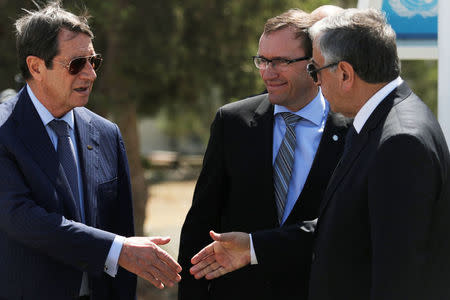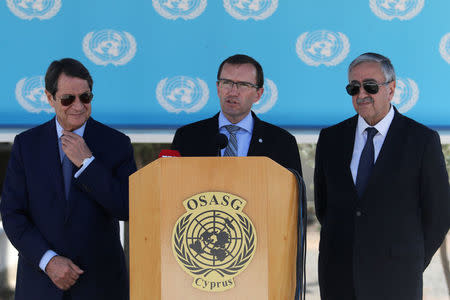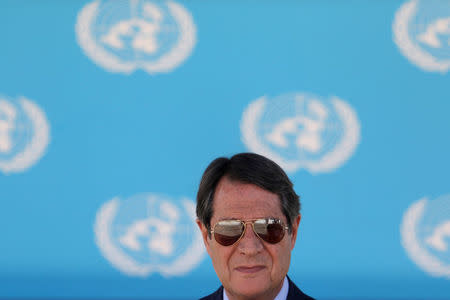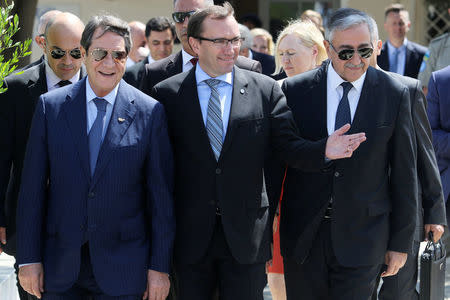Cyprus leaders say committed to a peace deal this year
By Michele Kambas NICOSIA (Reuters) - A United Nations envoy said on Wednesday "significant progress" had been made in peace talks to end Cyprus's long-running division, with the sides committed to a deal this year. Tensions over the east Mediterranean island, split since an Athens-inspired coup in 1974 triggered a Turkish invasion, have at times brought NATO members Greece and Turkey to the brink of war. Generations of diplomats have failed to find a settlement. "Cognisant of the remaining challenges, the two leaders are committed to continuing and intensifying their efforts...in the coming months with the aim of reaching a comprehensive settlement within 2016," Espen Barth Eide, the United Nations special representative to the Cyprus conflict, said in a statement on behalf of Turkish Cypriot leader Mustafa Akinci and Greek Cypriot leader Nicos Anastasiades. As well as a source of recurring tension between Athens and Ankara, the dispute is an impediment to Turkish aspirations to join the European Union, an issue now in sharper focus because of a migrant crisis. Brussels this year promised Ankara it would speed up accession talks in return for Turkish help in stemming the massive migrant inflow to Europe. Eide said Anastasiades and Akinci would meet UN Secretary-general Ban Ki-moon on Sept. 25 for further consultations. Cyprus won independence from Britain in 1960, but power sharing between the Greek Cypriot and Turkish Cypriot populations soon crumbled amid communal violence. The Athens-inspired Greek-Cypriot coup in 1974, aimed at union with Greece, triggered a Turkish invasion that has split the island into geographically separated Greek and Turkish Cypriot territories. Under Cyprus's independence treaty, its sovereignty is guaranteed by Greece, Britain and Turkey. This clause has turned into one of the thorniest issues in reunification talks, with Greek Cypriots refusing to discuss a deal where any third country - namely Turkey - maintains intervention rights over the island. Turkish Cypriots, on the other hand, want so-called "guarantor rights" maintained, wary of past experience with the Greek Cypriot majority and particularly the 1960s, when clashes forced many to withdraw into enclaves. Eide said significant progress had been made on issues of governance, power sharing, economic issues and property disputes. He said there had been brainstorming on security and guarantees and territorial adjustments. "Although these initial exchanges have demonstrated that the respective views remain apart, there is a strong determination to resolve them in a mutually acceptable manner," Eide said. (Reporting By Michele Kambas; editing by Ralph Boulton)

 Yahoo News
Yahoo News 



